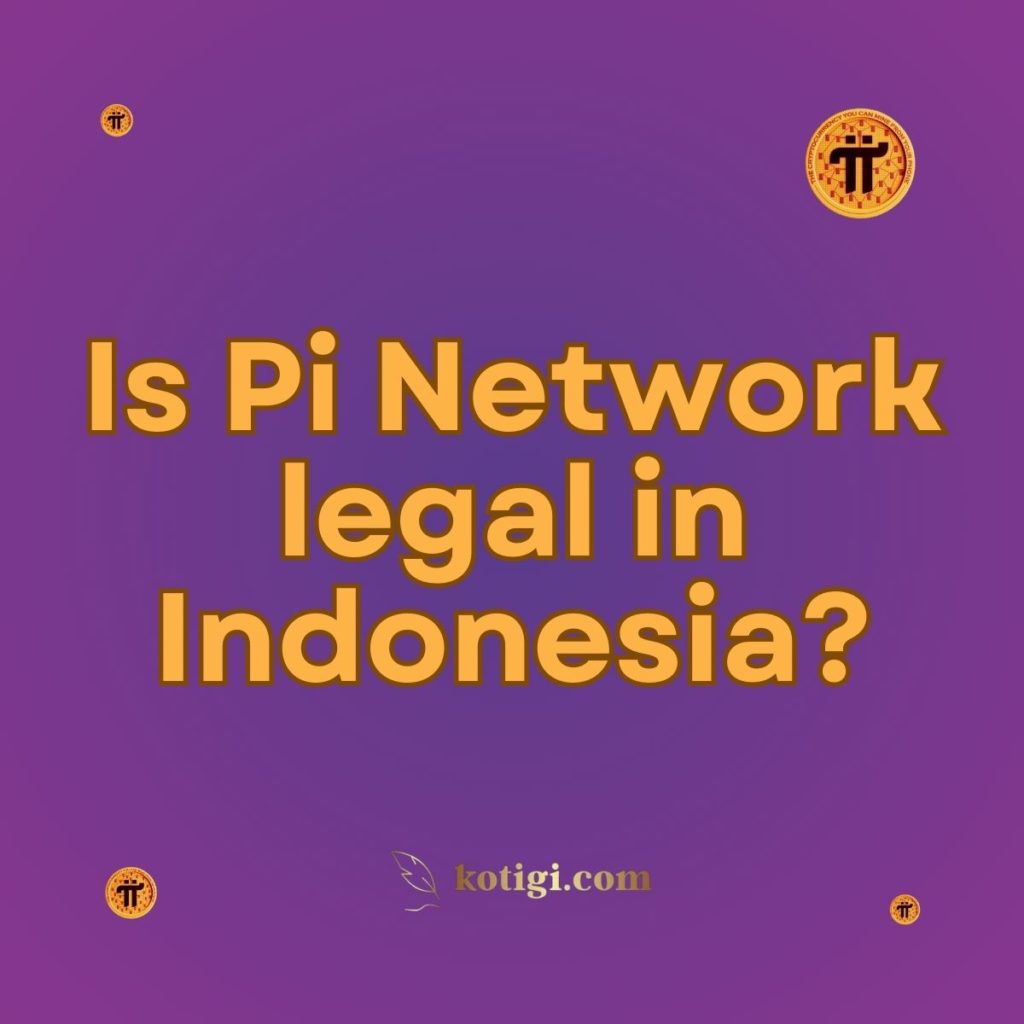
Is Pi Network legal in Indonesia?
Pi Network’s legal status in Indonesia is not specifically defined at this point, much like in many countries where cryptocurrency regulation is still evolving. However, by understanding Indonesia’s overall stance on digital assets, it is possible to assess how Pi Network is likely to be perceived by Indonesian regulators in the near future.
Cryptocurrency Regulations in Indonesia
Indonesia has taken a cautious approach to cryptocurrency, adopting strict regulations but not outright banning its use. While digital currencies are not recognized as legal tender, the Commodity Futures Trading Regulatory Agency (BAPPEBTI) regulates cryptocurrency trading. In 2019, BAPPEBTI officially recognized cryptocurrencies like Bitcoin and Ethereum as commodities, allowing them to be traded on futures exchanges, but they cannot be used for payments.
The Bank Indonesia (BI), Indonesia’s central bank, has prohibited the use of cryptocurrencies for transactional purposes. This means businesses cannot accept digital currencies as payment for goods and services. Despite this, trading and investing in cryptocurrencies remain legal, provided the platforms offering these services are registered with BAPPEBTI and comply with Know Your Customer (KYC), Anti-Money Laundering (AML), and Counter-Terrorism Financing (CTF) regulations.
Current Status of Pi Network in Indonesia
Pi Network is still in its testnet phase, and Pi coins have not yet been assigned a real-world value. Since Pi coins are not currently traded on exchanges or used for financial transactions, they do not fall under Indonesia’s existing regulations regarding digital payments.
As of now, there have been no official statements or regulatory actions by Indonesian authorities specifically targeting Pi Network. This means that Indonesian users can legally participate in the platform’s mobile mining process without facing legal repercussions. Pi Network is primarily a social experiment and a decentralized blockchain project at this stage, which means it remains outside the formal regulatory framework for digital assets in Indonesia.
Potential Future Regulations for Pi Network
Once Pi Network transitions to its mainnet and Pi coins become tradable, the platform could come under the regulatory oversight of BAPPEBTI. If Pi is classified as a commodity, it would be subject to the same legal requirements as other cryptocurrencies in Indonesia. This would include ensuring compliance with AML, CTF, and KYC regulations, and possibly registering Pi coins as tradable assets.
It is important to note that while Indonesia does allow cryptocurrency trading, digital currencies cannot be used for payment purposes. If Pi Network eventually supports payments, it would not be legal to use Pi coins for such transactions in Indonesia. However, users could still trade and invest in Pi if it meets the regulatory criteria set by the government.
No Official Ban on Pi Network
Currently, there is no official ban on Pi Network in Indonesia. Indonesian users can access the platform, engage in mobile mining, and participate in the ecosystem without any specific legal constraints. However, as Pi progresses toward becoming a fully functional cryptocurrency, Indonesian regulators could impose specific legal obligations on the platform, particularly if Pi coins start being traded on exchanges or used for investment purposes.
Conclusion
Pi Network is currently legal in Indonesia, as there are no specific restrictions or regulations targeting the platform. Users can freely participate in the mobile mining of Pi coins, as Pi is not yet recognized as a tradable asset. However, once Pi Network transitions to its mainnet and Pi coins become tradable on exchanges, the platform is likely to come under BAPPEBTI’s regulatory framework for cryptocurrencies.
While Pi coins cannot be used as a payment method due to Indonesia’s restrictions on digital currencies for transactional use, the platform could still operate as a commodity trading platform, provided it complies with local regulations. Indonesian users should stay updated on any changes in cryptocurrency regulations that could impact Pi Network once it becomes fully operational.





